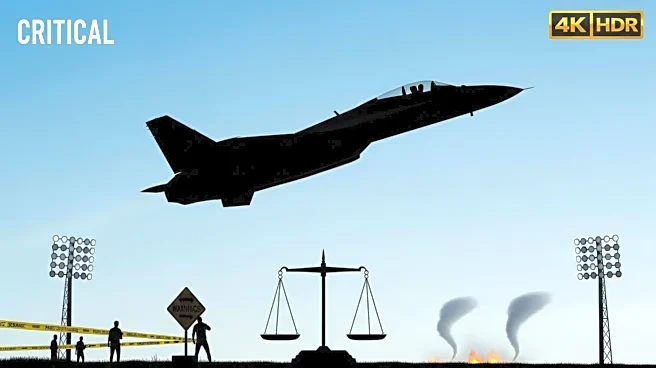What's Happening?
During a Senate Armed Services Committee hearing, senators urged Gen. Kenneth Wilsbach, the nominee for Air Force Chief of Staff, to address the declining mission-capable rates and rising sustainment costs of the F-35A fighter jet. The F-35, known as the most advanced fighter in the world, has faced issues with readiness rates falling short of Pentagon goals, with many jets sitting idle. Sen. Roger Wicker emphasized the importance of the F-35's operational capability for national defense. Wilsbach acknowledged the need for increased investment in weapons-sustainment accounts to ensure parts availability and reduce downtime.
Why It's Important?
The F-35 program is crucial for maintaining U.S. air superiority and national security. The issues with readiness and costs have implications for military effectiveness and budget allocations. Addressing these challenges is vital for ensuring that the Air Force can project power and fulfill its defense commitments. The senators' focus on the F-35 highlights the importance of maintaining advanced military capabilities while managing costs. The program's success is essential for retaining pilot expertise and ensuring the U.S. remains competitive in global military technology.
What's Next?
The 2026 defense budget includes provisions for purchasing additional F-35s, but the implementation of funds will depend on the Defense Department's discretion. Gen. Wilsbach's approach to addressing the F-35's issues will be closely monitored by lawmakers and defense stakeholders. The Air Force may need to prioritize investments in sustainment accounts to improve readiness rates. Additionally, discussions on strategic priorities, such as countering China, may influence future budget allocations and military focus.
Beyond the Headlines
The challenges facing the F-35 program reflect broader issues in military procurement and sustainment. The need for timely delivery and upgrades from manufacturers like Lockheed Martin highlights the complexities of defense contracting. The situation underscores the importance of balancing technological advancement with cost management. The program's success is not only critical for national defense but also for maintaining the U.S.'s position as a leader in military innovation.









